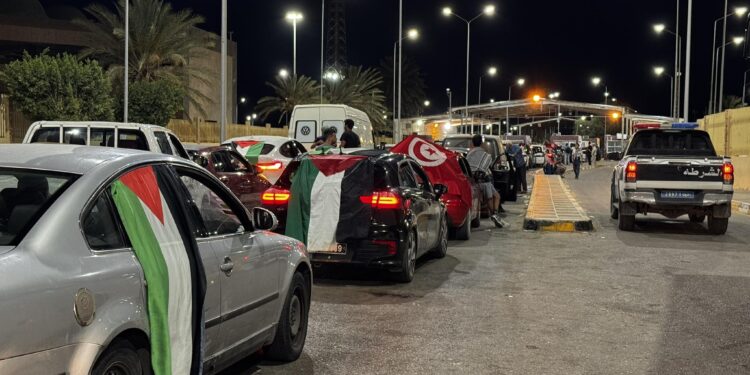The message is clear, although formulated with diplomatic prudence. In an official press release, the Egyptian Ministry of Foreign Affairs recalled the strict conditions of access to the border area of Gaza, without explicitly mentioning the “breath caravan”, Tunisian militant convoy of international solidarity supposed to rally the Gaza Strip via Rafah. The text, published in a context of strong international pressure to break the blockade, nevertheless sounds like a polished refusal with regard to this symbolic initiative.
The press release begins with a warm welcome to regional and international positions supporting the rights of the Palestinians and denouncing “the siege, famine and systematic Israeli violations”. Egypt also claims to continue working at all levels to end the Israeli assault on Gaza and relieve the humanitarian disaster which affects more than two million people.
But this displayed solidarity is accompanied by firm reminders of the administrative rules in force. Any foreign delegation wishing to go to the border region (notably in Al-Arich and as Rafah) must imperatively obtain prior authorization, via official channels: either by Egyptian embassies abroad, or by foreign embassies in Cairo or directly with the Ministry of Egyptian Foreign Affairs.
The rest of the press release leaves little room for interpretation: no request will be examined outside the strict regulatory framework set up since the war on Gaza. In other words, citizen, activists or informal initiatives such as the breathless caravan, are excluded from the system. Cairo here invokes security reasons: the border situation would be too delicate to allow uncontrolled movements.
It is also specified that Visits to government or human rights organizations have already been authorizedbut in the strict respect of these procedures. Any attempted bypass will therefore be automatically rejected.
Prudent diplomacy, a lock maintained
Through this development, Egypt seeks to preserve its image as an essential mediator in the conflict, while firmly maintaining its control over the non -Israeli crossing point to Gaza. Finally, she recalls that the pressure must be exercised on Israel to remove the blockade and open the other humanitarian access points, thus returning the main responsibility to Tel Aviv.
But by reaffirming these restrictive conditions, Egypt actually locks the transition to citizen solidarity initiatives, which it deems potentially embarrassing or uncontrollable on the diplomatic field.








